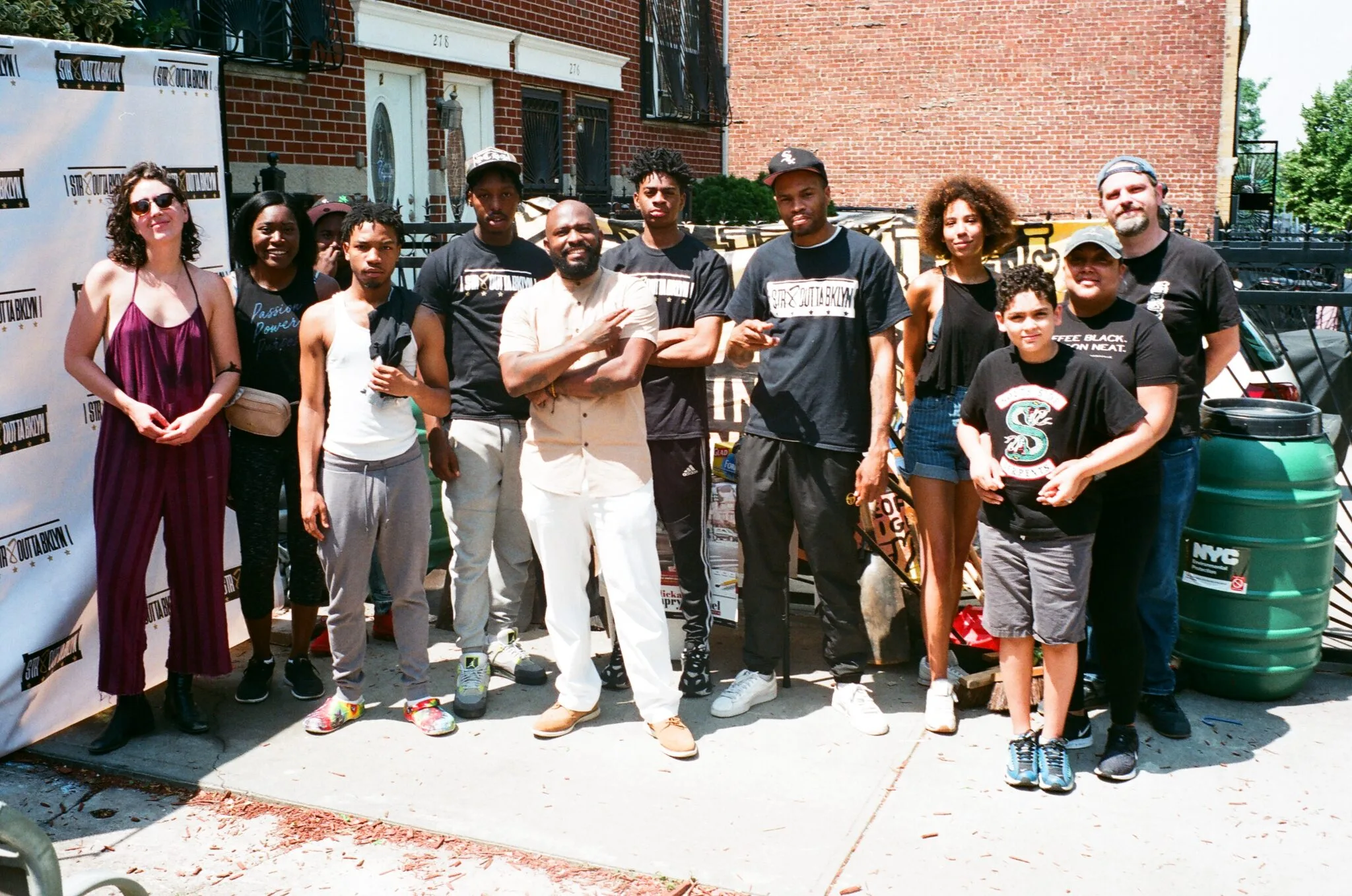Johari James is a youth mentor, business owner, community activist, hip hop artist, and father from Flatbush, Brooklyn. Through his organization Str8OuttaBklyn Media, he offers vocational training and artistic programs for youth and community artists to thrive. Johari’s work was supported by The LP’s Create & Connect Fund in 2021. Recently, Community Engagement Coordinator Erica Rawles sat down with Johari to hear more about his inspiration and practice.
This interview has been lightly edited for clarity and brevity.
Erica Rawles: Can you start by sharing a little bit about yourself and who you are?
Johari James: Alright, peace, peace. My name is Johari James, also known as Nova. I am an artist, I would think of myself as an artist first and foremost. Well, I’m a father first and foremost now—father of a four-year-old daughter. But I’m an artist, and I mentor youth in my neighborhood. I live in Ocean Hill, but I was born and grew up in Flatbush, Brooklyn. Been in Ocean Hill, Brownsville for 17 years, so this side of town has been my home for a while.
I’m an emcee; I’ve been writing and performing for a long time. And I’m a working artist, so I’ve been doing my music thing throughout my career, and also managing a business on the side [where I do telecommunications contracting].
Through the years, I started to bring on the young guys of our neighborhood into my business. Not teenagers, but like 20-something year-olds I knew who were being productive, I started to bring them on as apprentices and provide them with an opportunity to make money. And as I was doing that, and still doing my music, I started to blend the concept of mentoring the guys around me, and started doing the same with music.
Johari James: It happened organically. As I started to slow down with the performing aspect of music, I was still creative and in the field, so I found artists that needed assistance. A lot of them would be young artists that would see me performing, and they wanted to rap for the first time. So I would bring them to the studio, get them some beats, and help them develop their artistry at that initial stage.
I really fell into enjoying mentorship. Music was always very community based, so mentoring and finding that angle was really dope for me. That’s what I’ve been doing for the last few years, and using my event planning skills to put together shows and block parties and fashion shows, all sorts of things. And now these youth workshops and showcases.
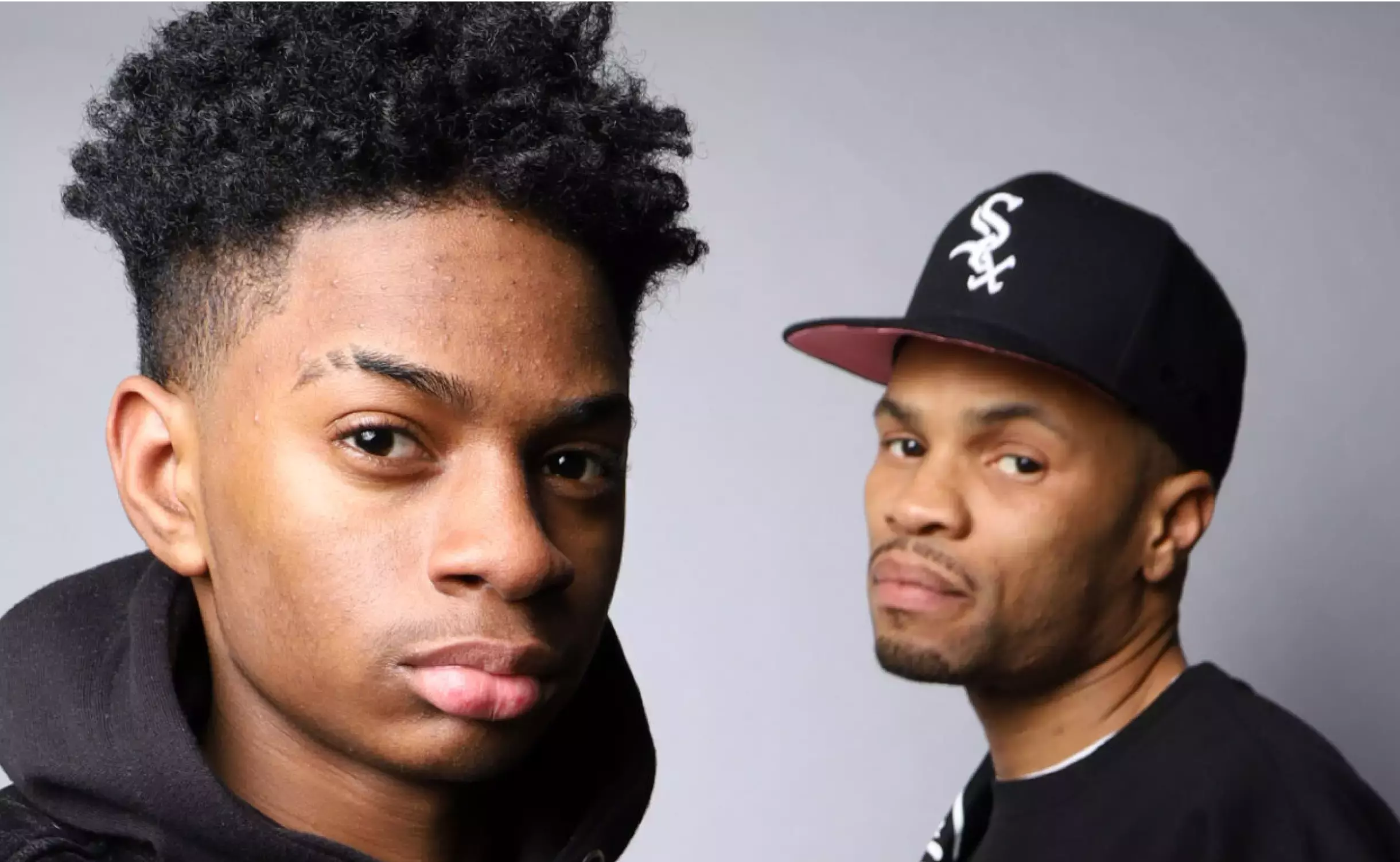
ER: Thanks so much for sharing that. I’m interested in what you said about music being very community oriented. Could you talk a little bit about your journey into music, and also what that community looks like to you?
JJ: Music was a big force for me in my social world. Like in junior high and high school, we were rapping. Especially in our community, the Black community, kind of everyone does some form of creative art, and usually music is one of the main things that we gravitate to. So yeah, I was dabbling around young. And then after high school, we all tried our hand at college for a year or two and just decided that wasn’t what we wanted to do at the time, and really locked into music. That really gave me my social foundation. The social currency that I have right now I really attribute to those teenage and early-twenties years of going hard with the music.
We were able to get an independent deal and put out some music in the record stores in the early and mid 2000s. The collection was called New Rap Order and the name of the group was The Project. We were talking about gentrification in 2003, talking about the changes in our community and how we could try to effect the change. In the songs, we didn’t even necessarily call it gentrification—that term was jumping around for decades, but it wasn’t really a hot button topic at the time.
Music gave me social presence, confidence, speaking skills. So now I can be [where I am today] and at least have some sort of insight when I [work with] the young. I feel like music is even more important to kids now than when I was young. It’s everything now, with social media, and the fact that it’s on your phone—it’s just right there. So all of these kids, they want to rap. And I try to hear them out, I give them their space, and I just try to impart my old man wisdom and advice.
ER: So tell me about Str8OuttaBklyn and how it came about. Working with youth is a big focus of what you do—why is that important to you?
JJ: When I was doing my music, I would shoot videos on my block. One time there was a kid across the street who wanted to be in the video, so he was in it with his little sister and a couple other people. Then he wanted to tell me that he could rap, so I was like, “Alright, cool, man.” So he starts rapping, and he’s good. I formed a little bond with him. He was maybe 11 or 10 at that time, and he would always bug me to [let him] come to the studio. So I told his mom, and I started taking him around. I kind of took him under my wing, so to speak. And then one day it happened really organically—his mom was there, and in the moment, she just told him something like, “Listen to your mentor,” you know what I mean? And that’s when it all came together. It was that moment where you’re just like: “Oh shoot. Oh wow. Okay, that’s cool, that’s interesting.”
It was powerful to me, because I wasn’t necessarily calling myself his mentor, but it made me just reflect on what I had already been doing, and say, “Okay, I know that I can do this. At least I think I can do this, and I’m willing to give it a shot.”
So then I started having him come work with me. He would bring his friend around, and his other friend, so now I have like eight boys at my door. Literally wake up in the morning, I got eight boys at my door and they’re like, “Yo, what’s up? We need something to do today.” And I would be like, “Okay, you all are going to clean up my yard. You all are going to sweep the street, and I’m going to give you all $30 each” or whatever it may be, just doing things like that. Then that turned into resume workshops, interview workshops, and stuff like that. And if they were into music, I would bring them to the studio.
“It was powerful to me, because I wasn’t necessarily calling myself his mentor, but it made me just reflect on what I had already been doing, and say, ‘Okay, I know that I can do this. At least I think I can do this, and I’m willing to give it a shot.'”
Ariana Faye Allensworth
So last year, I started putting on events like the Artist & Repertoire Show, which was an event to highlight artists of his age. He’s sixteen now, that kid. So just highlighting and giving those kids that are thirteen, fourteen, fifteen, sixteen—that age—a space where they can come express themselves, and know that like, yo, there’s somebody out there that gives a damn about them outside of school.
Because that’s the thing, you’re in school for a certain amount of time, then you get out of school and into the streets, it’s like, that’s it. You’re lucky if they’re in school.
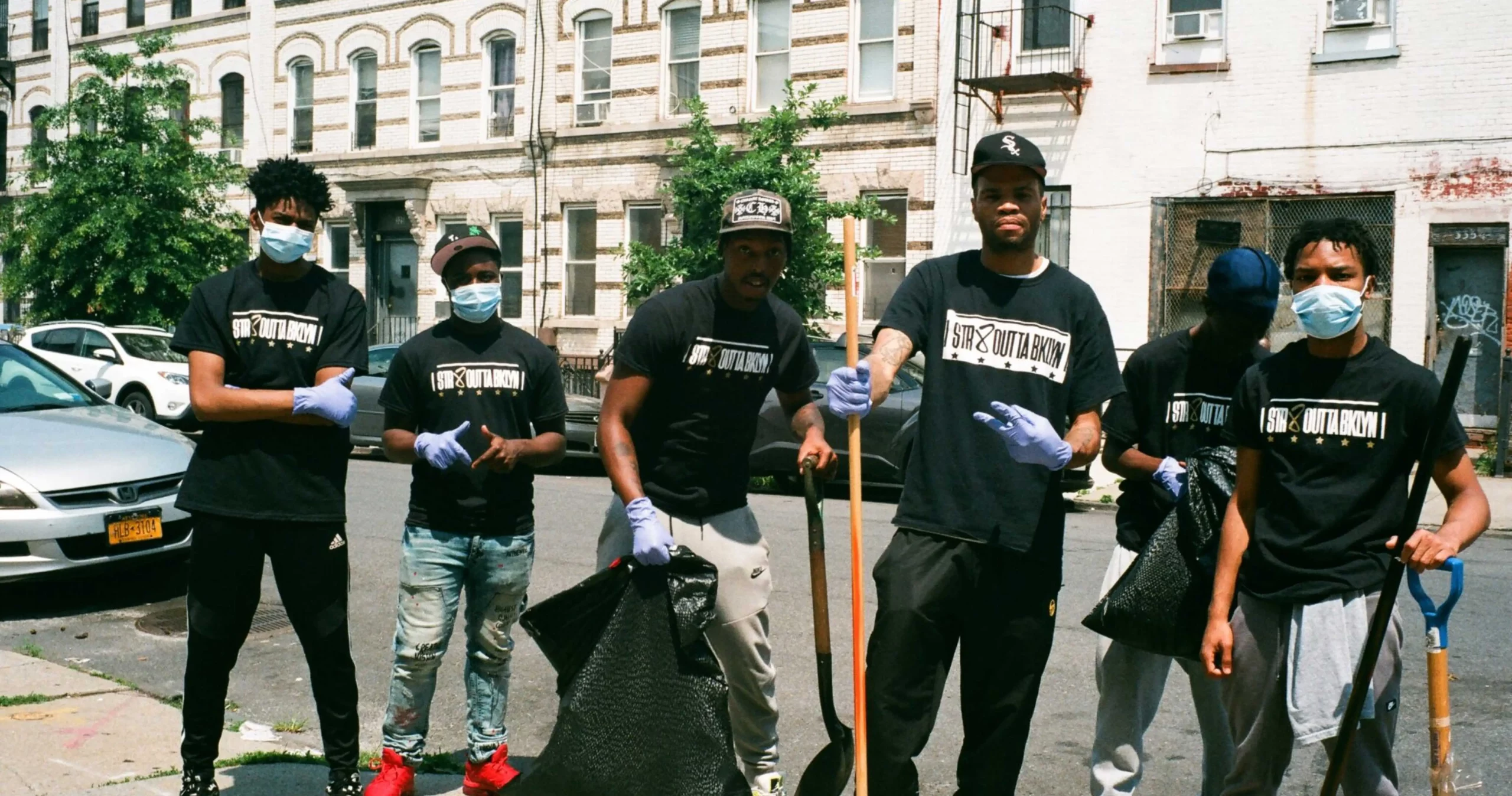
So I was doing this mentoring, and when it was time for me to name my business, I wanted to name it Str8OuttaBklyn. I knew that that represented what I wanted to do, which was, plain and simple, to create a better Brooklyn, starting with my own neighborhood, and give the youth in my neighborhood as many opportunities as I can, offering resources, and providing them with a better Brooklyn than what I grew up in and what it is kind of turning back into. It’s an interesting space where Brooklyn is at right now. It’s in a real weird place.
I got the name from the [1991] movie Straight Out of Brooklyn [directed by Matty Rich]. It’s in that genre of Juice and Boyz n the Hood, but it was a lot more low-production. It’s a really good movie and it was really impactful to me. I wrote an album titled Str8OuttaBklyn, kind of using that movie as a visual motif to follow with my songs. So Str8OuttaBklyn just stuck with me.
ER: Is there anything you want to share about what’s coming up for Str8OuttaBklyn? Any plans or anything you’re excited about working on this year?
JJ: Yeah, we just started putting together our summer programming. We were awarded another grant, the Brooklyn Arts Council grant. So this summer, our first event in June is our School’s Out event, which is a concert and summer youth employment fair. We have three high schools so far, and we’re looking to coordinate with about five to seven different schools. Students from those schools will come out, perform, and do their thing in different genres and disciplines of talent. They’ll also be able to get in touch with people that can offer them jobs.
Then we have a cleanup that we’re doing in July. The neighborhood cleanups are something I started doing last year, just on my block with the kids. It’s a good way to get the youth outside and active. We collaborate with the local block associations and the local community gardens, and we gather people—all the neighbors, have youth come out, and we coordinate with the sanitation department. We barbecue and whatnot, not a block party, but a little event and cleanup.
Then we have some music classes. We’re working with a Black-owned bar restaurant in my neighborhood here called Gems Lounge; they’re offering their space for a lot of different community events. That’s where we did the [Artist & Repertoire] show that [The Laundromat Project] sponsored in November, where we were able to give away food and turkeys. They’re going to provide their space and we’re doing some free music classes with teaching artists. We have DJing, beat making, guitar playing, drumming, all these different disciplines. So I have a lot of people to educate and assist with getting the youth on board and keeping them active in the summer.
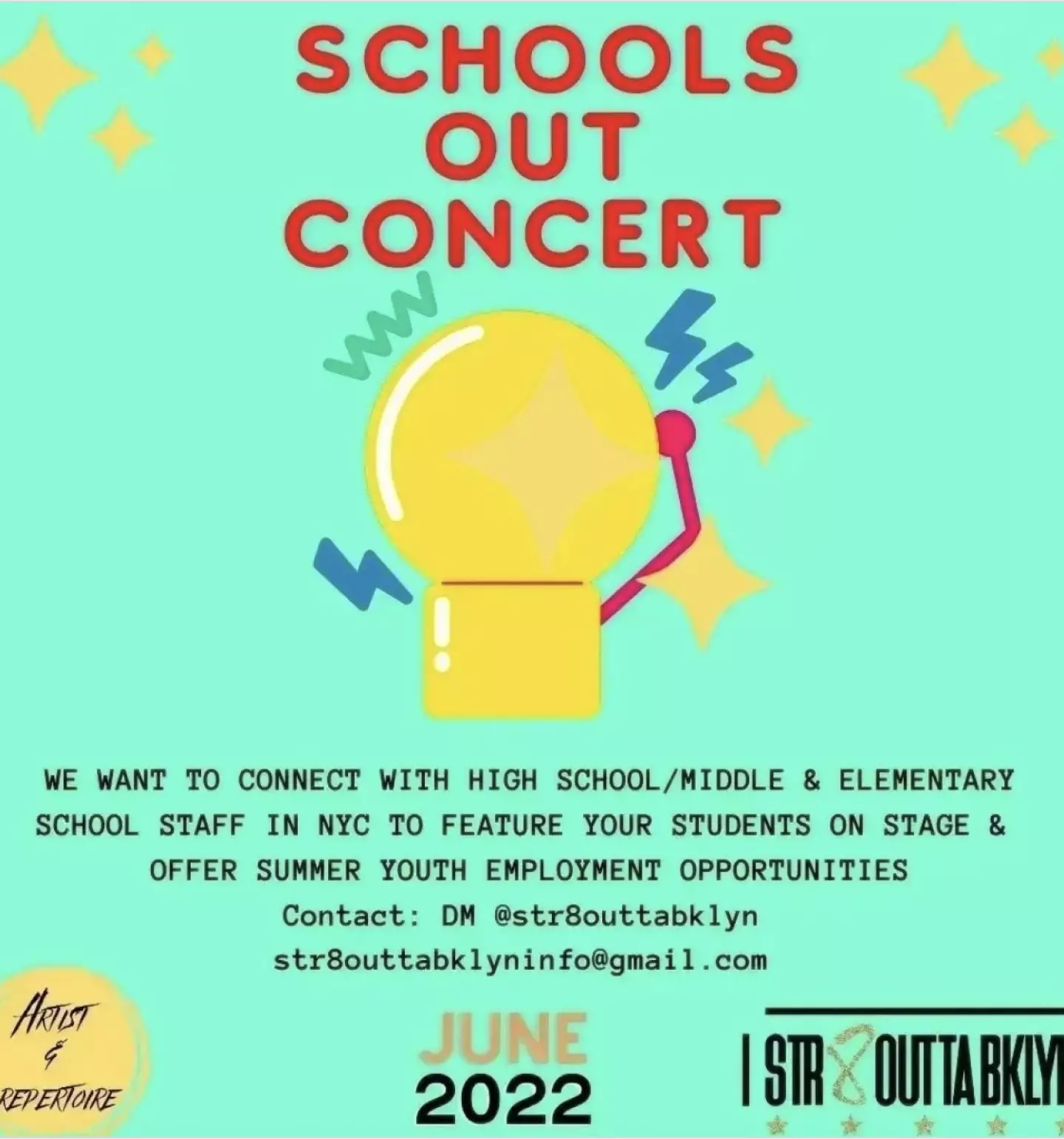
And then we’ll end the summer with another Artist & Repertoire back-to-school event, same kind of format with the concert. We’ll have arcade games and just try to just make another fun activity. The whole concept for us is creating safe spaces, specifically, like I said, in this community. In East Brooklyn, there’s not a lot of activities or things to do on a casual level for a kid.
My ultimate goal in the next two to three years is really to build a community hub where we put a spin on, or update rather, the standard idea of a community center, like the YMCA and Boys & Girls [Club] type of thing, where it’s more technologically advanced. This would be something more on the lines of BRIC in Downtown Brooklyn, but something that’s more freeing. We’ll have a fresh market, retail, a community space that’s funded and run by the residents of the neighborhood.
I actually think every neighborhood needs to have a really dope community center, and they should all work within a network that the community can rely upon. There’s too many barriers between residents and local politicians and people that can make change on a direct level. So that’s one of the goals that we have.
ER: That’s super exciting. It’s great to hear about everything you all have going on this summer, and I love your vision for a community community center that’s run by residents and self-determined, that’s really powerful. Imagining all of these hubs throughout different neighborhoods and the connections those hubs could have between themselves is a beautiful vision. Thank you for sharing all that. This brings me to my last question. You seem like a very entrepreneurial person. I’m wondering what advice you might give to someone who has their own ideas that they hope to bring to life? What have you learned through your own experience that you would share?
JJ: You should write down your ideas and whatever plan it is that you have, no matter how big or crazy or scary, just write it down. In your phone, on your wall, however you gotta do it. And then you should write down the steps and figure out how you’re going to get there. I think it empowers you, because it’s in stone, it’s there. And then writing down what it takes to get there, but not overwhelming yourself with the steps. I was in a meeting yesterday, actually, and that’s one of the things Yogi [also known as Y?, founder of Creative Expressions] told me, who was one of the people who taught me how to write grants. The [grant writing] process can be overwhelming, and it’s easy to be overwhelmed by things when you look at the whole big picture.
I’m gonna quote him, he was saying: “Some days you just gotta say, ‘Step one, stand up. Step two, walk. Step three, get water. Step four, drink it. Step five, go outside.’” You have to break it down that simple. So if you have your plan and it’s five steps, those five steps might turn into 25 steps, because each step might be five mini steps. But just try to see it through. That’s the last part really, just try to see it through.
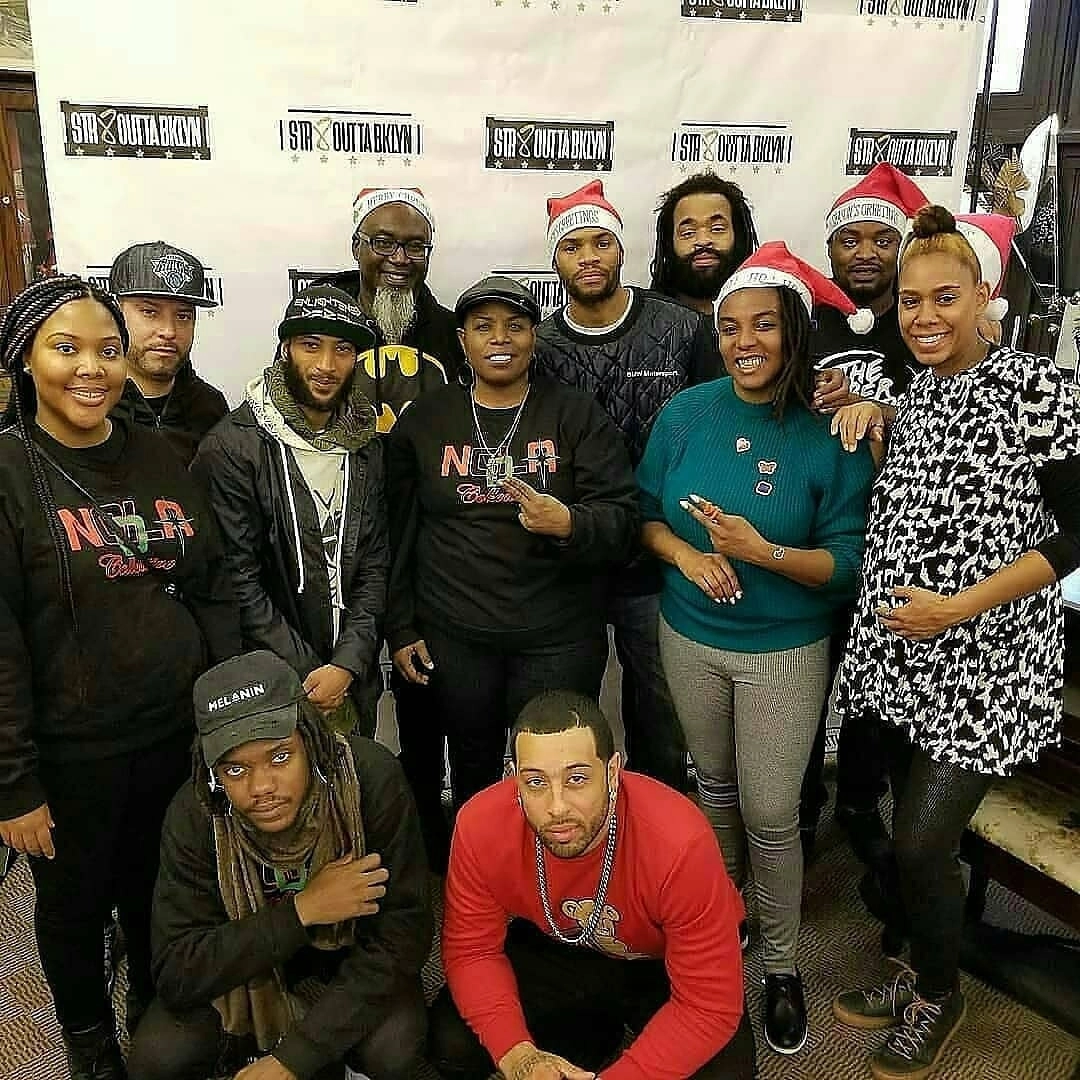
Born and raised in Brooklyn, NY, Johari Nova James is a youth mentor, business owner, community activist, hip hop artist, and artist manager. Through his company Str8OuttaBklyn Media LLC, he creates employment opportunities for youth, as well as youth and community initiatives such as art programs, neighborhood cleanups, youth resume workshops, etc. Creating safe and sustainable spaces in the Black community, controlled by community residents, is at the core of what Johari and Str8OuttaBklyn Media is all about.
